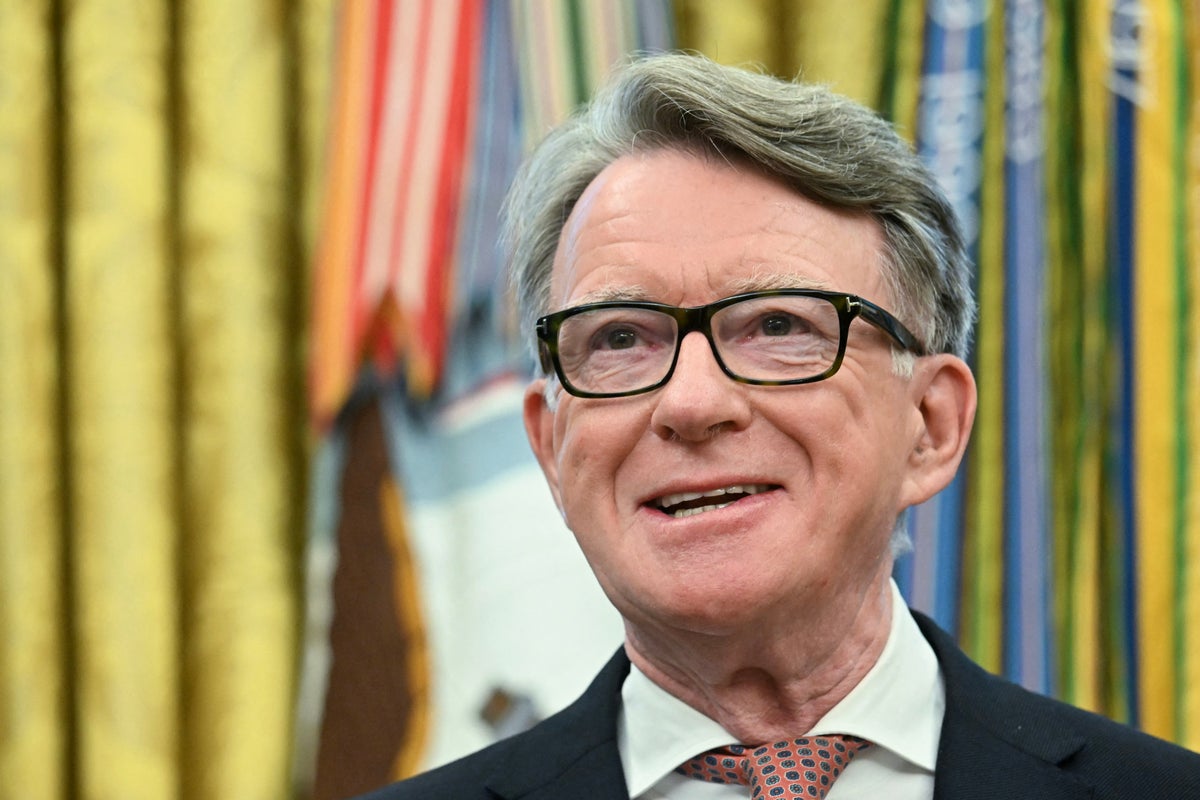Given what has emerged about Peter Mandelson’s relationship with the convicted paedophile Jeffrey Epstein, it was both inevitable and right that he should be sacked from one of the most prestigious, high-profile and sensitive roles in public life. No individual, whatever their talents, is bigger than the standing of the country they purport to represent on the national stage.
Two questions arise immediately from this affair. First, why Sir Keir Starmer appointed him in the first place; and why, in recent days, the prime minister continued to express such belief in his friend and ally.
As recently as the last session of Prime Minister’s Questions, Sir Keir declared: “I have confidence in him, and he is playing an important role in the UK-US relationship.” In other words, what did No 10 know, and when? If Sir Keir’s pledge of transparency in government is to mean anything, he must now publish the papers relating to Lord Mandelson’s appointment, and open up the whole process to public scrutiny.
The prime minister’s spokesperson has let it be known that the details about the relationship were not available last December when Lord Mandelson landed the job. That suggests the vetting process may not have been as vigorous as it should have been, and a serious lapse in intelligence-gathering for such a posting.
It also betrays a lack of curiosity on the part of the prime minister, and unexpectedly so in a man with such legal expertise, a reputation for forensic attention to detail and, as his chief of staff apparently thinks, with the outlook of an HR manager. After all, Lord Mandelson’s association with Epstein was well known – and that alone should have disqualified him from consideration. Common sense should have come into play.
Labour figures as disparate as Maurice Glasman and John McDonnell warned No 10 that Lord Mandelson was an unsuitable candidate, for a variety of reasons. Yet Sir Keir pressed on. It was not as if he were the only person in the frame, and he had a track record of unfortunate associations with the rich and powerful, and two forced resignations from the Blair administration behind him. His many scrapes amount to a pattern of behaviour, and an undesirable one for any ambassadorship.
He had also once described Donald Trump as “little short of a white nationalist and racist”, though, with typical skill, he parlayed that into a kind of devotion to the newly re-elected president, who is forgiving, provided a suitable display of abject public contrition is made.
Much the same puzzlement about his loyalty to Lord Mandelson goes for Sir Keir’s determination to back the now former ambassador when the latest embarrassing and deeply damaging revelations appeared. As they did – in all their excruciating detail – Lord Mandelson himself said there were even more embarrassments to come. If he had intimated even in the broadest terms to the prime minister what these amounted to, then Sir Keir should have shown the ruthless streak he was renowned for earlier in his leadership and at least suspended him immediately.
The proximity of the state visit to the UK by President Trump may have stayed his hand, but it was increasingly apparent that the situation was untenable – even if it would generate unwelcome headlines about the president’s own controversial dealings with Epstein. Had Lord Mandelson somehow been allowed to cling on, it would have wrecked the visit.
Obviously, Sir Keir was unaware of the details of the email exchanges between the then Peter Mandelson and Jeffrey Epstein when this “charismatic” (Lord Mandelson’s word) billionaire was facing criminal charges for procuring a child for prostitution in 2008. However, it is hard to believe that Mandelson doesn’t remember anything about them. Whether he warned the prime minister about the content or not, Lord Mandelson, a political operator par excellence, must have realised he could not survive them.
They go far beyond the Mandelsonian spin that he was merely a member of the Epstein circle and, as a gay man, was unaware of the sex trafficking involving young women and girls. A man as worldly wise as Peter Mandelson cannot have been “conned”, as he puts it, by clever lawyers and a cunning criminal.
And yet still he wrote: “I think the world of you and I feel hopeless and furious about what has happened. I can still barely understand it. It just could not happen in Britain. You have to be incredibly resilient, fight for early release and be philosophical about it as much as you can … Your friends stay with you and love you.” The sentiments he expressed to Epstein are gratuitous and beneath contempt, and his fealty obscene.
It is tempting, but quite wrong, to see Lord Mandelson as some sort of tragic figure, a brilliant man undone by his flaws. Even though it is widely acknowledged that, in purely diplomatic and political terms, he was proving a highly effective ambassador, using his influence to some advantage in promoting British interests in trade and international security, it was simply impossible for someone who was so compromised to continue in post.
In previous administrations, he had been a successful minister – but only until he tempted his luck too often. He was not another victim of Epstein; he actually thought Epstein was a victim of injustice. Those emails from 17 years ago are a powerful rejoinder to the “tragedy of Peter” narrative.
The conclusion is unavoidable. Lord Mandelson has been the author of his own misfortune, as so often in the past – but, this time, against a background of considerable human suffering. There can be no coming back from this, and even the prime minister will not find it easy to recover his own reputation. It’s over for Lord Mandelson, alright – but not for the Labour government.

